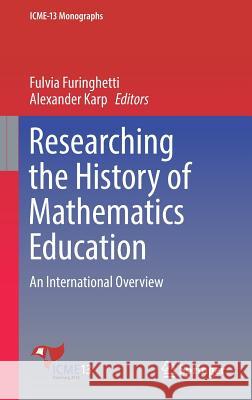Researching the History of Mathematics Education: An International Overview » książka
topmenu
Researching the History of Mathematics Education: An International Overview
ISBN-13: 9783319682938 / Angielski / Twarda / 2017 / 314 str.
Kategorie:
Kategorie BISAC:
Wydawca:
Springer
Seria wydawnicza:
Język:
Angielski
ISBN-13:
9783319682938
Rok wydania:
2017
Ilość stron:
314
Waga:
0.66 kg
Wymiary:
23.5 x 15.5
Oprawa:
Twarda











